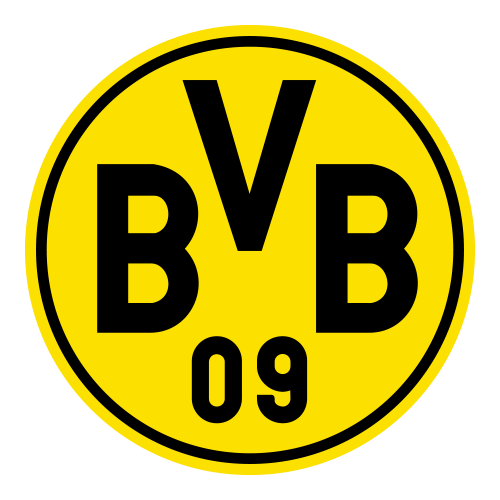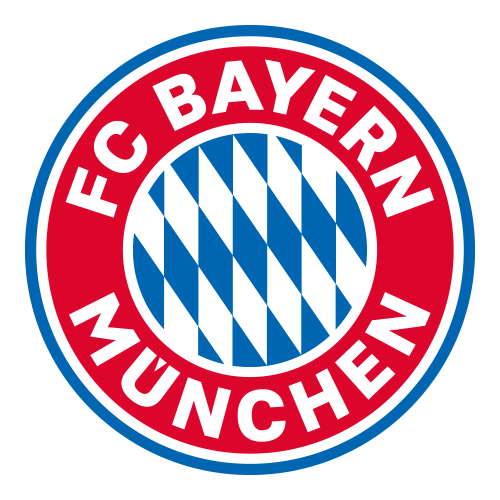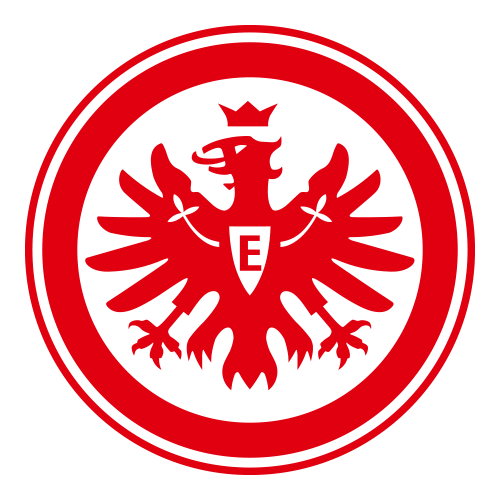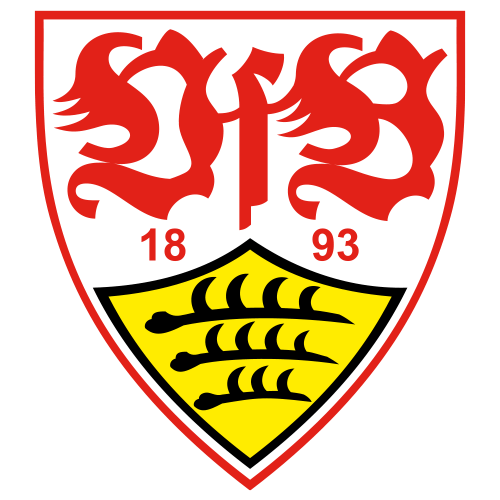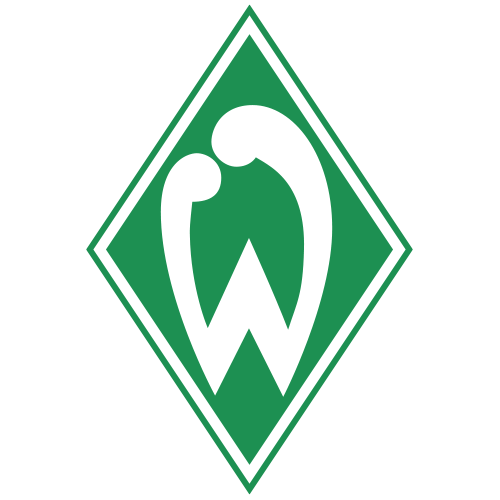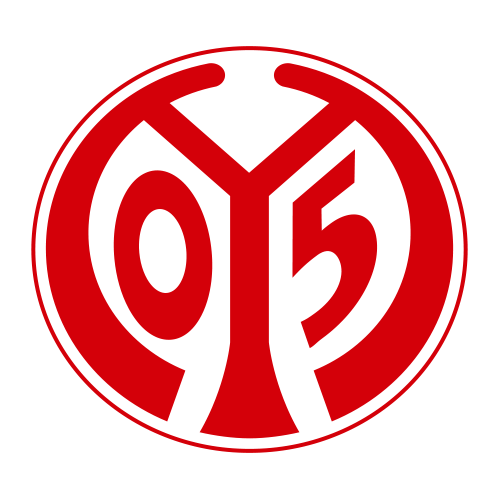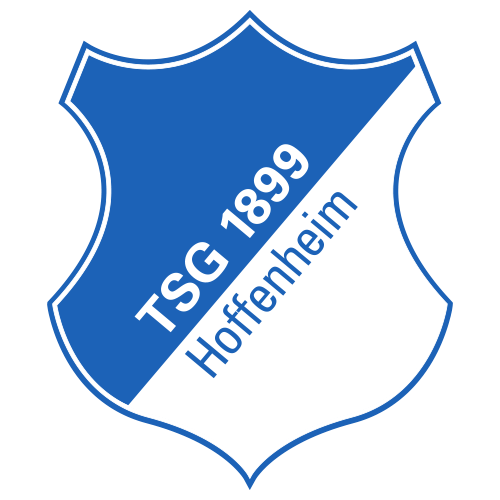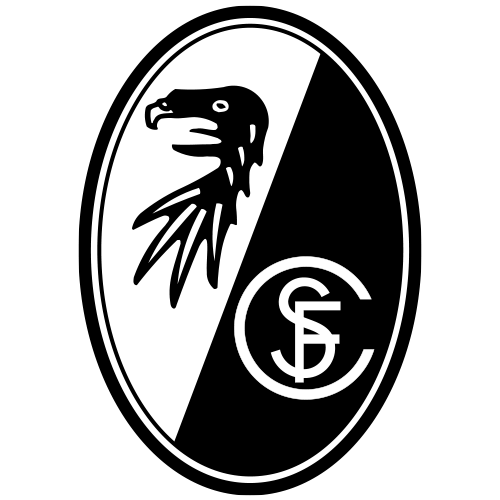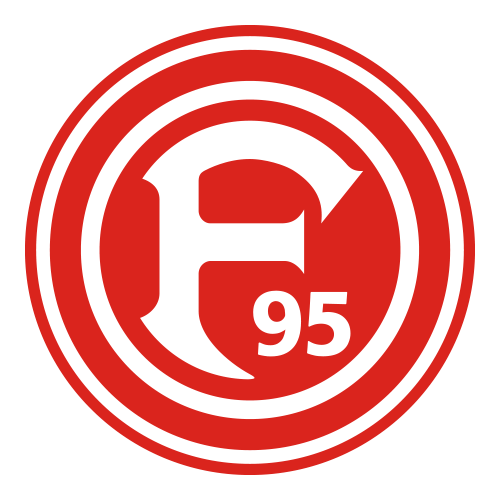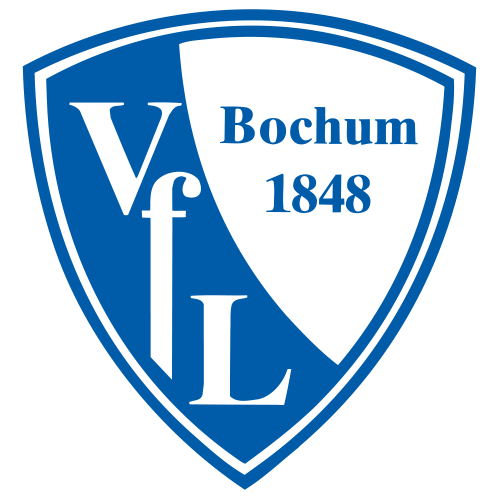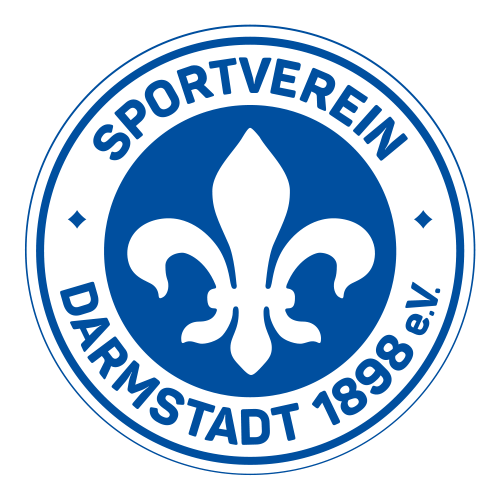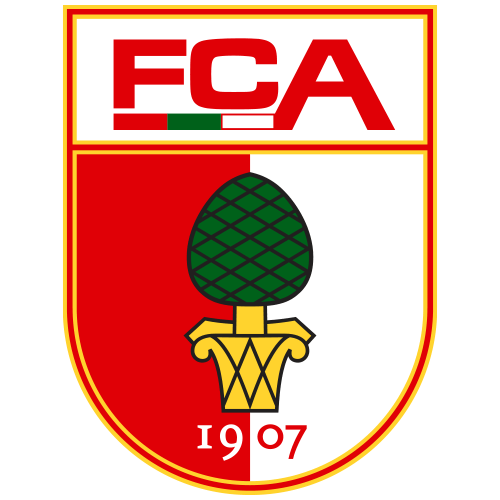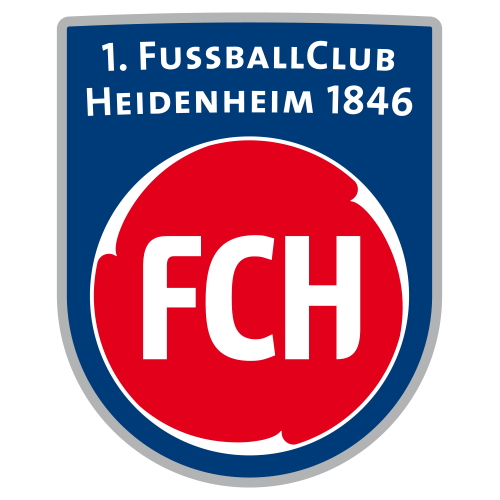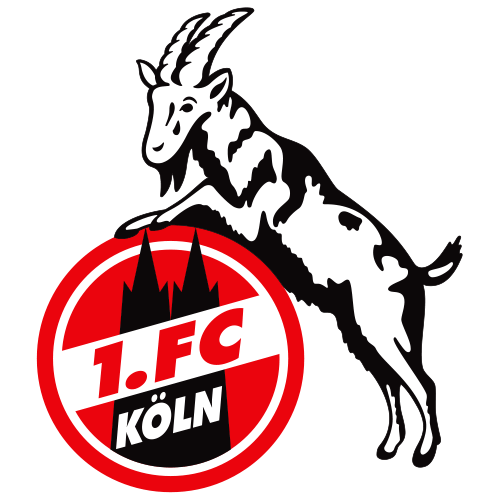Search results
Other games
Champions League FT May 7 @ 
Paris Saint Germain W1 - 0Recap Bundesliga FT May 11 @ 
1. FSV Mainz 05 L0 - 3Recap Champions League 3:00 PM EDT Jun 1 vs 
Real Madrid Preview Rank GP W D L Pts 0  Fortuna Düsseldorf
Fortuna Düsseldorf0 0 0 0 0 1  Bayer 04 Leverkusen
Bayer 04 Leverkusen33 27 6 0 87 2  FC Bayern München
FC Bayern München33 23 3 7 72 3  VfB Stuttgart
VfB Stuttgart33 22 4 7 70 4  RB Leipzig
RB Leipzig33 19 7 7 64 5  Borussia Dortmund
Borussia Dortmund33 17 9 7 60 6  Eintracht Frankfurt
Eintracht Frankfurt33 11 13 9 46 7  1899 Hoffenheim
1899 Hoffenheim33 12 7 14 43 8  Sport-Club Freiburg
Sport-Club Freiburg33 11 9 13 42 9  1. FC Heidenheim 1846
1. FC Heidenheim 184633 9 12 12 39 10  FC Augsburg
FC Augsburg33 10 9 14 39 11  SV Werder Bremen
SV Werder Bremen33 10 9 14 39 12  VfL Wolfsburg
VfL Wolfsburg33 10 7 16 37 13  Borussia Mönchengladbach
Borussia Mönchengladbach33 7 13 13 34 14  VfL Bochum 1848
VfL Bochum 184833 7 12 14 33 15  1. FSV Mainz 05
1. FSV Mainz 0533 6 14 13 32 16  1. FC Union Berlin
1. FC Union Berlin33 8 6 19 30 17  1. FC Köln
1. FC Köln33 5 12 16 27 18  SV Darmstadt 98
SV Darmstadt 9833 3 8 22 17 Dortmund ( German: [ˈdɔʁtmʊnt] ⓘ; Westphalian: Düörpm [ˈdyːœɐ̯pm̩]; Latin: Tremonia) is the third-largest city in North Rhine-Westphalia, after Cologne and Düsseldorf, and the ninth-largest city in Germany. With a population of 612,065 inhabitants, [3] it is the largest city (by area and population) of the Ruhr as well as the ...
- 86 m (282 ft)
- Germany
May 1, 2024 · Dortmund, city, North Rhine–Westphalia Land (state), western Germany. Located at the southern terminus of the Dortmund-Ems Canal, it has extensive port installations. First mentioned as Throtmanni in 885, Dortmund became a free imperial city in 1220 and later joined the Hanseatic League.
- The Editors of Encyclopaedia Britannica
- Borussia Dortmund
- German Football Museum
- Westfalenpark
- Florianturm
- LWL-Industriemuseum Zeche Zollern
- Dortmunder U
- Museum Ostwall
- Museum für Kunst und Kulturgeschichte
- Dasa – Arbeitswelt Ausstellung
- Botanischer Garten Rombergpark
Not many football teams are the best thing about their city, but there aren’t many football teams like Borussia Dortmund. Historically, BVB are Germany’s second most successful team after Bayern Munich, and they play at the gargantuan Signal Iduna Park. Even if you only have a passing interest in the sport you have to experience this 81,359-capacit...
When it was decided that the profits from Germany’s 2006 World Cup would be reinvested in a football museum, North Rhine-Westphalia was the obvious choice for the location. There’s a high concentration of well-supported football teams in this part of the country, and Dortmund was eventually picked for host city. The museum opened in 2015 and is abo...
Under the constant gaze of the Florianturm on the south side of Dortmund, the Westfalenpark is a paid-entry 70-hectare green space with a multitude of little attractions to keep you engaged a whole afternoon. The horticultural areas deserve a detour: The Deutsches Rosarium has 3,000 different rose varieties, but also stages annual events like the e...
The entrance to Dortmund’s television tower is on the north side of the Westfalenpark. It costs €2.50 to catch the lift to the observation deck, in addition to the €1.50 to enter the park. At just under 220 metres, the Florianturm is the 14th highest structure in Germany and for a brief time after it was completed in 1959 it was the tallest televis...
If you never thought a colliery could be beautiful, wait until you see Zeche Zollern, which has stylish Art Nouveau elements from the turn of the 20th century. The Berlin Jugendstil architect Bruno Möhring designed the central machine building, fronted by a stained glass window with blue and green panels. The colliery closed down in 1969 and since ...
This high-rise former brewery building has been a Dortmund landmark since 1927. It housed the Dortmunder Union Brauerei, which for a short time was the most productive brewery in West Germany. That trademark “U” on the roof was added in 1968 and stands nine metres tall. In 2010, to coincide with the Ruhr becoming European Capital of Culture, the Do...
Dortmund’s modern and contemporary art museum was founded in 1948 and moved to the Dortmunder U in 2010. When the museum first opened it displayed the Expressionist and New Objectivity works that the Nazis had deemed “degenerate art”, and the museum swelled with the arrival of the Gröppel Collection in 1957. Expressionism is still the soul of the p...
The Dortmund Savings Bank is a handsome Art Deco building constructed in 1924, and in 1983 it became the home for the museum of art and cultural history. The museum was established in 1883 but had moved away to Cappenburg Castle after being razed during the war. Most of the art is from the 19th century, by painters such as Caspar David Friedrich, A...
Created for Germany’s Expo 2000, the DASA is a museum all about the world of work. Historical and modern working environments are exhibited, and there are typewriters, early computers and antique manual printers, in contrast to a state-of-the-art office and a factory robot. You can dip into Dortmund’s industrial past, inspecting the control room of...
At 65 hectares, Dortmund’s botanical gardens are among the largest in the world. They are named for the Romberg family whose estate was landscaped as an English park in 1822. The park came into the city’s hands in the 1920s, and thousands of perennials, flowering plants, medicinal herbs and trees have been planted. There are four greenhouses, for t...
Nov 1, 2019 · Things to Do in Dortmund, Germany: See Tripadvisor's 39,497 traveler reviews and photos of Dortmund tourist attractions. Find what to do today, this weekend, or in May. We have reviews of the best places to see in Dortmund. Visit top-rated & must-see attractions.
- Start Your Dortmund Adventure in the Alter Markt and Altes Stadthaus. The central feature of the Old Town of Dortmund is the Alter Markt, the Old Market.
- St. Reinold's Church. Dominating Dortmund's cityscape is St. Reinold's Church (Reinoldikirche), its 104-meter-tall tower visible for miles around. Started in the 13th century and not completed until 1454, the church is named after Dortmund's patron saint, Reinold.
- Take a Tour of the Zollern Colliery. One of eight former industrial sites now included under the umbrella of the Westphalian State Museum of Industrial Heritage, the Zollern Colliery is a disused coal mine famous for its stunning architecture, particularly the redbrick façades of its main buildings.
- Wander Westfalenpark. Covering 175 acres, Dortmund's Westfalenpark is one of the city's largest and most popular green spaces. The park is home to a number of attractions, including a 212-meter-high television tower affectionately known to locals as the Florian Tower (Florianturm).
Dortmund (Low German: Düörpm; Latin: Tremonia) is a city with a population of about 600,000 in the North Rhine-Westphalia region of Germany. It is in the middle part of the state and is considered to be the administrative, commercial and cultural centre of the Ruhr area, which has some 5.21 million inhabitants (2017).
People also ask
Is Dortmund a city?
Where is Dortmund located in Westphalia?
What is Dortmund known for?
What is Dortmunder U?
Westfalenpark. The Westfalenpark was first opened as part of the Federal German Garden Show back in 1959. Colourful flowerbeds, 2,600 types of roses in the “German Rosarium”, some great playgrounds and Florian the television tower all await you. Take the elevator to the top of Florian for a fantastic view over Dortmund and the Ruhr Region.
